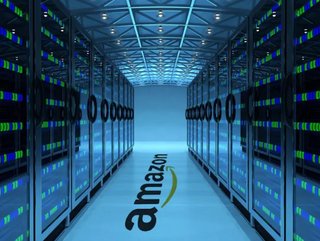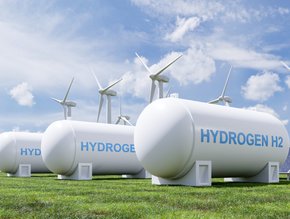AWS: Leading the Way to Sustainable & Efficient Data Centres

“We are determined to be inventive and relentless, as we work to make the cloud the cleanest and the most energy-efficient way to run all of your infrastructure and your business,” said Adam Selipsky, CEO of Amazon Web Services (AWS).
The cloud and data centre giant, a subsidiary of Big Five company Amazon, is setting a prime example of making profits while simultaneously working on ways to protect the environment, proving that these two entities are not mutually exclusive.
And the numbers speak for themselves. AWS boasts impressive figures, stating that its infrastructure is five times more energy efficient than typical European data centres, and 3.6 times more efficient on average than those in the US. Across Amazon, in 2022, 90% of electricity consumed came from renewables.
So, how is AWS making sustainability and energy efficiency core to its green future?
AWS: The road to net-zero by 2040
With a lofty goal of being net-zero in its operations by 2040, 10 years ahead of many, AWS is also in pursuit — and is well on its way — to using 100% renewable energy. It initially set a goal of 2030, but is set to reach this milestone next year, five years ahead of target.
AWS’ renewable energy is sourced from utility-scale wind and solar, with parent company Amazon also investing US$2 billion through the Climate Pledge Fund to support sustainable technologies — including committing to purchase 250,000 metric tons of carbon removal from 1PointFive via direct air capture (DAC).
Claiming Amazon is the “world’s largest corporate purchaser of renewable energy” Selipsky added: “We’re already over 85% of the way there and we’re also investing. Please, everyone get involved. [Climate change is] a problem for all of us.”
But for AWS, it’s not just about relying on renewables in making positive impacts for the benefit of the environment. It’s about cutting down on excess energy use altogether. This is part of its commitment to becoming the ‘cleanest’ cloud to run enterprise workloads in the world.
With it widely reported that the data centre industry contributes to the equivalent of 1% of energy-related greenhouse gas emissions or 0.6% of total greenhouse gas emissions, AWS has a clear and constant focus on efficiency across all elements of its infrastructure. Data centres themselves are also estimated to consume 3% of global electricity, which could rise to 4% by the end of the decade.
“In just a few years, half of the world’s population is projected to live in water-stressed areas, so to ensure all people have access to water, we all need to innovate new ways to help conserve and reuse this precious resource,” Selipsky added. For this reason, AWS is committed to not only scaling back on its use of the vital resource to cool its data centres, but it intends to be water-positive by 2030 – in turn, returning more water to communities than it uses.
This, as well as AWS’ ability to utilise advanced modelling to optimise designs — so it has a clear idea how to make it more energy efficient before it is even built — puts it head and shoulders above the rest, setting an example how facilities can be built or refurbished from the ground up.
*******************
Make sure you check out the latest edition of Energy Digital Magazine and also sign up to our global conference series - Sustainability LIVE 2024.
*******************
Energy Digital is a BizClik brand.






